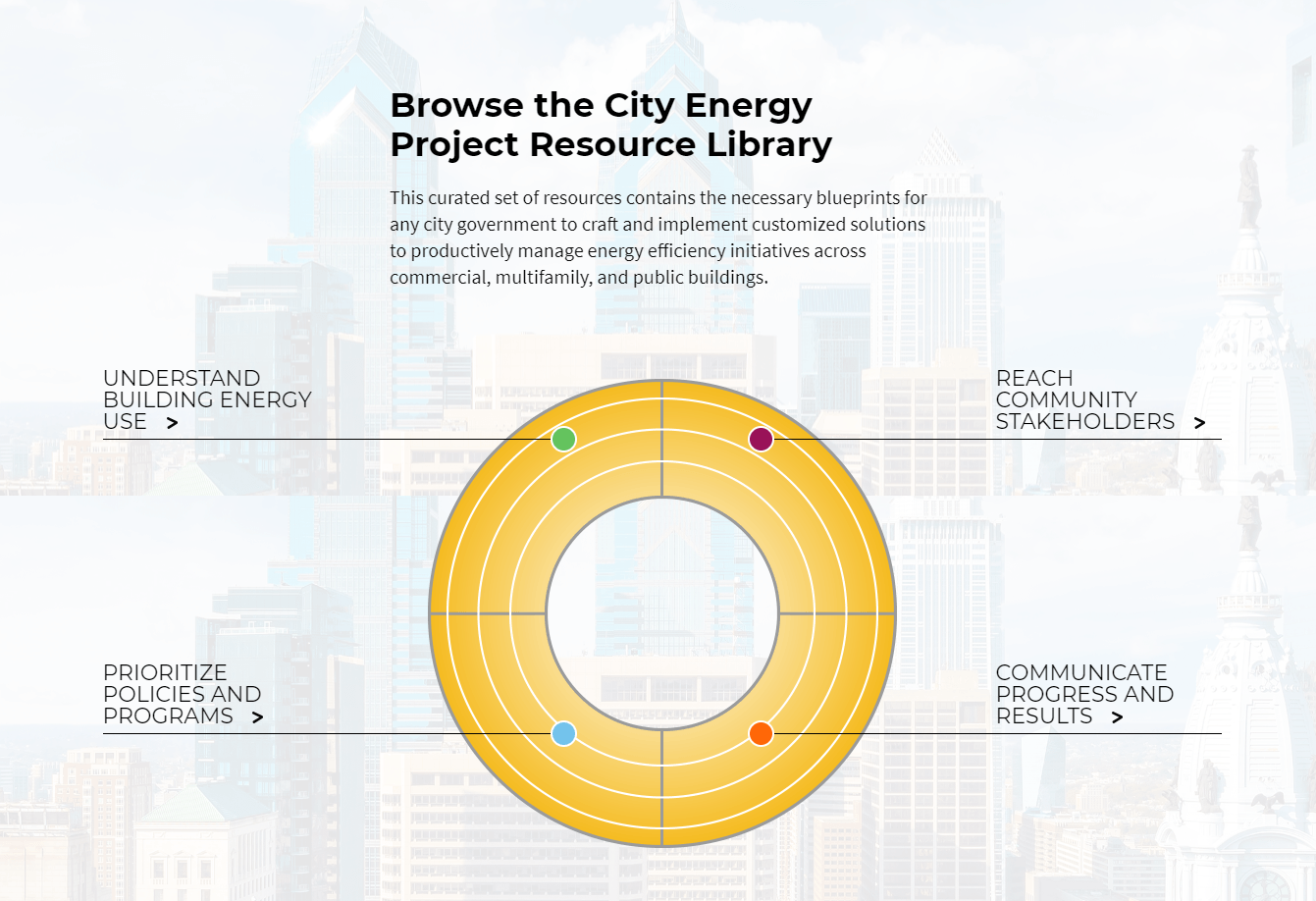What does it take to drive market transformation toward bigger, faster, deeper investments in energy efficiency? To figure this out, the City Energy Project, a national initiative from IMT and the Natural Resources Defense Council, embedded staff in 20 participating cities across the U.S. with a focus on boosting energy efficiency in buildings. These City Advisors help ensure that the energy efficiency efforts pursued by a city are customized to best meet local needs to maximize returns.
For Chris Castro, former City Energy Project City Advisor and current Sustainability Director for the City of Orlando, energy efficiency is a critical tool for enhancing quality of life, protecting natural resources, and driving a diverse and robust economy in the City Beautiful.

What drew you to work in municipal sustainability?
With their large concentrations of people and buildings, and therefore carbon emissions, cities are the best positioned to take action to reduce our impact on the environment and help the local economy. In Orlando, buildings contribute to 80 percent of the city’s carbon footprint. Benchmarking and efficiency have huge potential to save money and save the planet.
What does your team look like, and what is your specific role within the city?
I became a city advisor in 2014 and worked in that position for 2.5 years before being promoted to director of the City of Orlando’s Sustainability Department. Brittany Sellers came on as the new city advisor and did such amazing work implementing the City’s benchmarking ordinance that the city made her position permanent. Thus, the City gained two full-time employees as the result of one City Energy Project advisor position.
One unique thing about our Sustainability Office is that it is located in the executive offices of the city. That gives us different opportunities to engage with city staff and the public than if we had been housed elsewhere. Another structural element of our office that increases our impact is that it’s constructed like a sustainability consulting firm. We work with every other office in the city (from police to fire to waste management and IT) to make all municipal and community operations more sustainable.
What excites you most about this project and how does it benefit the citizens of Orlando?
Buildings are a huge contributor to the carbon footprint of our city. On top of that, the average American spends most of their life indoors. By implementing building benchmarking and energy efficiency improvements we are reducing pollution in our city, saving building owners and tenants money, and improving the quality of life for the people who live and work in Orlando.
Energy efficiency is the best and most economical tool we have to reduce carbon emissions and pollution in the City of Orlando. To meet those goals, we have been investing in the community through a host of policies and programs benefiting Orlando’s buildings. One example I have is our revolving energy loan fund. To do this, the City of Orlando took out a $17.5 million green bond and used it to create what was essentially an in-house energy services company (ESCO). So far, the City has invested-in and retrofitted 55 of its most energy intensive buildings, and with the savings has both been paying back the bond and reinvesting the other half in a revolving energy fund.

The City Energy Project is active nationwide in a host of cities of different size, location, and political context. What is unique about working in Orlando?
When I began proposing the benchmarking and transparency ordinance to some of our stakeholders, I found that they were sometimes philosophically opposed or didn’t believe in climate change. At first, the city was even receiving letters of opposition toward the ordinance. In response, we scheduled individual meetings with the dissenting parties and a host of other educational outreach activities to hear the concerns of the community. Then, we implemented people’s feedback into the design of our benchmarking and transparency ordinance. It was a rich professional growth experience in which I was challenged to build consensus, to hear the concerns of everyone who would be impacted by the ordinance, and to integrate that into a policy that would still reduce our carbon emissions, reduce our energy intensity, create a robust economy, and defend Orlando’s natural resources.
What advice would you have for other cities interested in becoming more sustainable?
Don’t reinvent the wheel, and don’t be afraid to reach out to sustainability departments in other cities. As a city advisor, the network of city advisors and the national perspective and support offered by City Energy Project Staff was extremely valuable. When I transitioned to my role as Orlando’s Director of Sustainability, I relied heavily on the Urban Sustainability Directors network, and without the support of my peers, I’d be lost.
When it comes to designing policy, work for policies that benefit the triple bottom line: people, planet, and prosperity. It’s also very important to be passionate about this work and remember patience when working in local government. The system is inherently slow because it relies on crucial checks and balances to safeguard the people.
More information about Orlando’s sustainability programs can be found at www.Greenworksorlando.com

The City Energy Project is a national initiative to create healthier, more prosperous American cities by improving the energy efficiency of buildings. The pioneering actions taken by the 20 participating cities are now distilled in a cured yet comprehensive City Energy Project Resource Library, a must-use tool for any jurisdiction on how to leverage energy efficiency to reach ambitious climate, economic, and social goals. Learn more at cityenergyproject.org.
